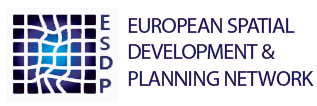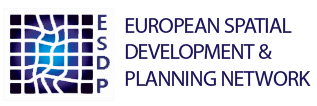Intensive Programme Methodology
In this section you will find information about the pedagogical approach followed in Intensive Programme.
Intensive Programme Methodology
During the IP, students from different academic backgrounds (planning, geography, economics, sociology) interact for two weeks to study particular spatial planning and development issues in a given locality and to produce a plan or a strategy to address them. Thus, contemporary urban and regional processes and planning practices, such as industrial restructuring, environmental management, urban renewal, brownfields redevelopment, or regeneration of degraded neighbourhoods are examined in a concrete context. Issues, planning perspectives and actual projects are discussed with privileged witnesses from local planning agencies and with other local stakeholders, as well as with the academic staff from the host and partner universities. Critical analyses and planning proposals addressing specific topics are then produced by small working groups (‘topic teams’) and evaluated by the staff.
Themes & Topics
The focus of the IP has evolved over time, also in function of the specific issues and planning processes at work in the selected places. Nonetheless, in each IP the chosen main theme is always addressed from different perspectives and articulated in ‘topics’, that are assigned to different groups of students (5-7), i.e. ‘topic teams’. The architectural quality of the built environment, the social impact of urban regeneration, the labour market implications of restructuring, the environmental sustainability of urban projects, or the economic viability of redevelopment strategies are some examples of such perspectives and topics.
Topic Team Formation
The assignment of individual students to the topics selected for each IP is done following two rationales. First, the students are asked to rank their individual preferences; subsequently, the criteria of multidisciplinarity and multinationality are introduced. The aim is to ensure that each topic team include different nationalities and disciplinary background, so as to maximize complementarity and interaction.
Structure & Organization
IPs are articulated in:
- Plenary lectures and site visits (3-4 days)
- Analysis and project work by topic teams (6-7 days)
- Plenary presentations of topic teams work and evaluation (2 days).
Plenary lectures and site visits are meant to introduce students to contemporary topics in the spatial planning and policy debate, as they can be recognized or applied to the local case. These topics obviously change over time and across locations. The evolution of the planning debate and the specific local issues are thus reflected in the choice of each IP general theme and topics, and in the specific lectures and site visits.
The work required from topic teams involves both the analysis of their topic in the selected context and project work. Based on the information, documentation and bibliography received during the plenary lectures and site visits during the first few days, as well as on the methodological briefing provided by the staff, topic teams draft a first outline of their work programme. These outlines are presented at a first plenary session and commented by students and staff. Subsequently, topic teams develop their analysis, on the basis of both secondary documentation and original interviews to local stakeholders (planning officials, residents, neighbourhood associations, private firms, developers, etc.) and further site visits if needed. They also begin drafting planning proposals, development strategies or focussed projects that address the issues identified in the analysis. These intermediate drafts are presented and discussed in a second plenary session. A final report, including both the analysis and project work, is then prepared and presented at a final plenary session and evaluated by the staff. The topic teams final output is thus made of a powerpoint presentation, a written report and annex visual material (photographs, maps, planning or project drafts).
Structure & Organization
During the IP, each topic teams must thus present its progress to the other groups and the staff, at least three times. During these presentations every student must make explicit his/her individual contribution to the group work. The plenary discussion of each topic team work by both students and staff is meant to point out links among the different topics, missing elements and/or possible avenues for improvement.
The IP has two moments of final evaluation. The first is by students and has provided invaluable inputs for the improvement of both the concept and the methodology of the experience. The second is the evaluation of the topic teams final product by the staff. Every student is given a mark, which is recognized at the home universities, according to the latter rules.

